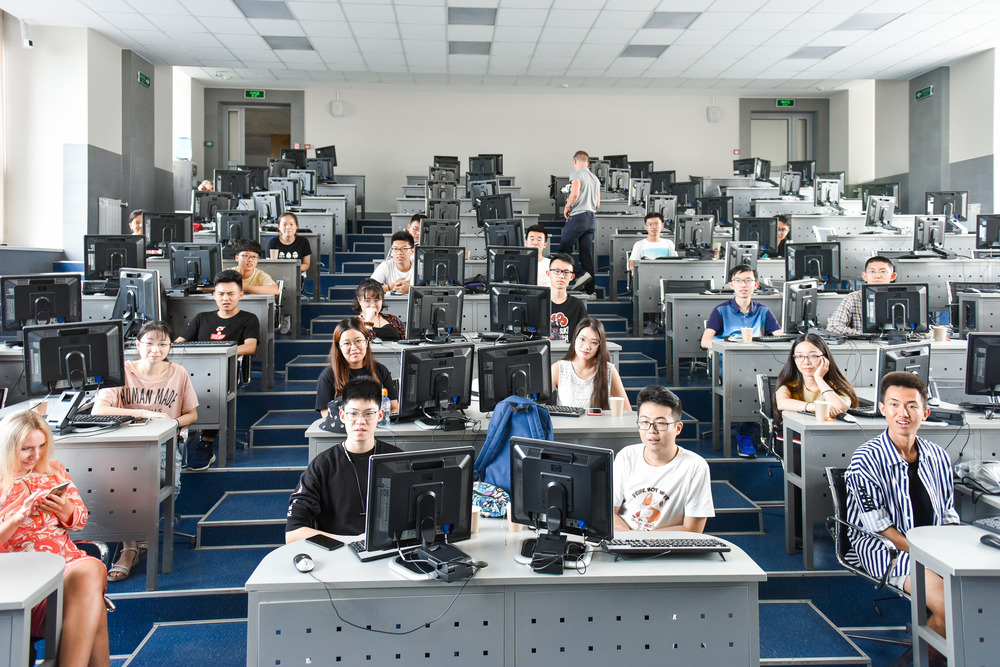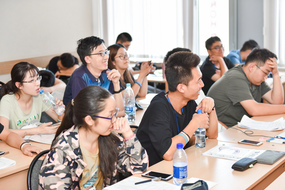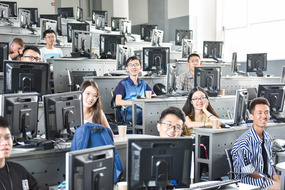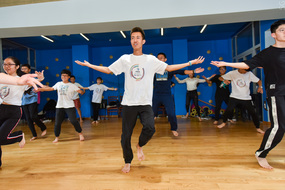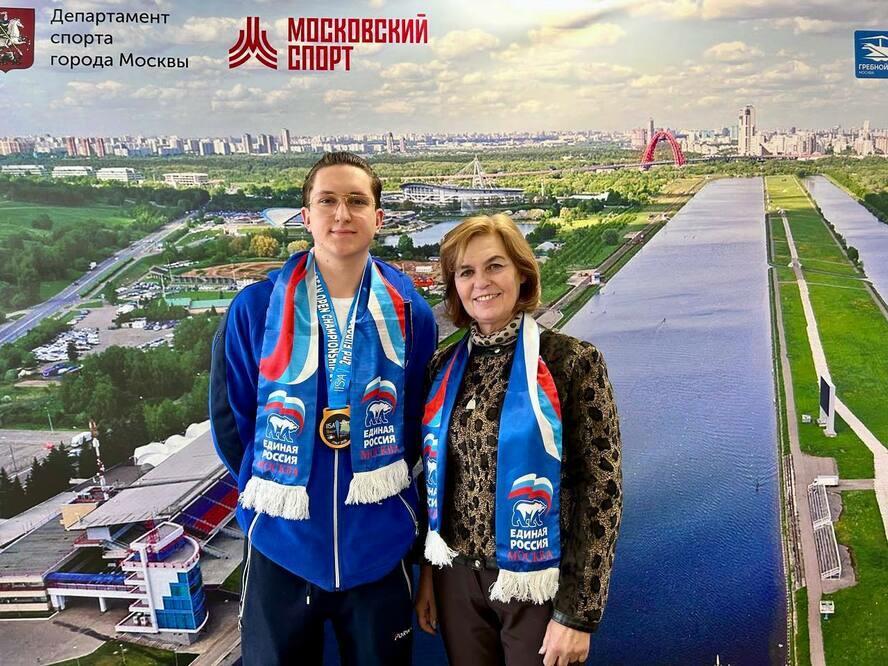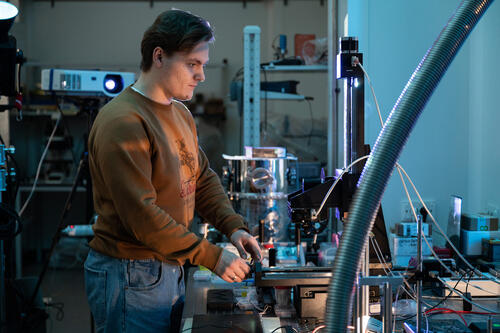From August 19th to 31st, 2018, NUST MISIS held the international summer school “Materials and Technologies” for international students interested in materials science, and inorganic & physical chemistry. The program included courses on materials and technologies for solar energy, biomaterials, and IT-technologies in materials science, as well as the study of materials and technologies for digital design and 3D printing.
Students learned features of various materials and technologies, including the CES EduPack 2018 3D printing method, which is particularly beneficial to students in engineering disciplines.
Thanks to the summer school’s new format — experiments in fresh air — the participants became convinced that solar energy is applicable in everyday life. Students could also see how the LEDs connected to solar panels light up or turn off depending on whether the light is hitting the panel.
An approach based on the principles of reverse engineering was used in the “Materials Selection” module. Groups of
“I really loved classes at the NUST MISIS summer school. All the lectures were given by experienced professors, and that helped us learn a lot. I will definitely recommend this school to my friends.”, — noted Pan Tsyachen, a foreign student from the University of Science and Technology Beijing.
In addition to technical subjects, students took an intensive Russian as a foreign language course taught by professors from NUST MISIS’s Department of Foreign Languages and Communication Technologies. The cultural component was the course’s main element: students from China learned Russian art, traditions, holidays and cuisine. For example, one of the classes was devoted to the painting of wooden dolls (matryoshkas), which students took home as a souvenir.
The international students also had excursions to learn more about the Russian capital, visiting the Kremlin, Arbat Street, the Tretyakov Gallery, the Izmailovsky Kremlin, Poklonnaya Gora, The Museum of Cosmonautics, and several of the largest parks in Moscow. To top off the students’ Russian experience, they learned how to do Russian folk dances.
“The summer school format provides an opportunity for both NUST MISIS’s potential students and anyone who wants to learn more about the University to listen to lectures and participate in master classes held by leading professors and international scientists. [Our summer schools] are particularly important for the implementation of our strategy to increase awareness about [the university] and [increase our] global positioning”, said Svetlana Podgornaya, head of the summer school, candidate of Technical Sciences, and senior lecturer at the Department of Material Technologies of Electronics.
The “Materials and Technologies” summer school was held on the basis of NUST MISIS College of New Materials and Nanotechnologies.
